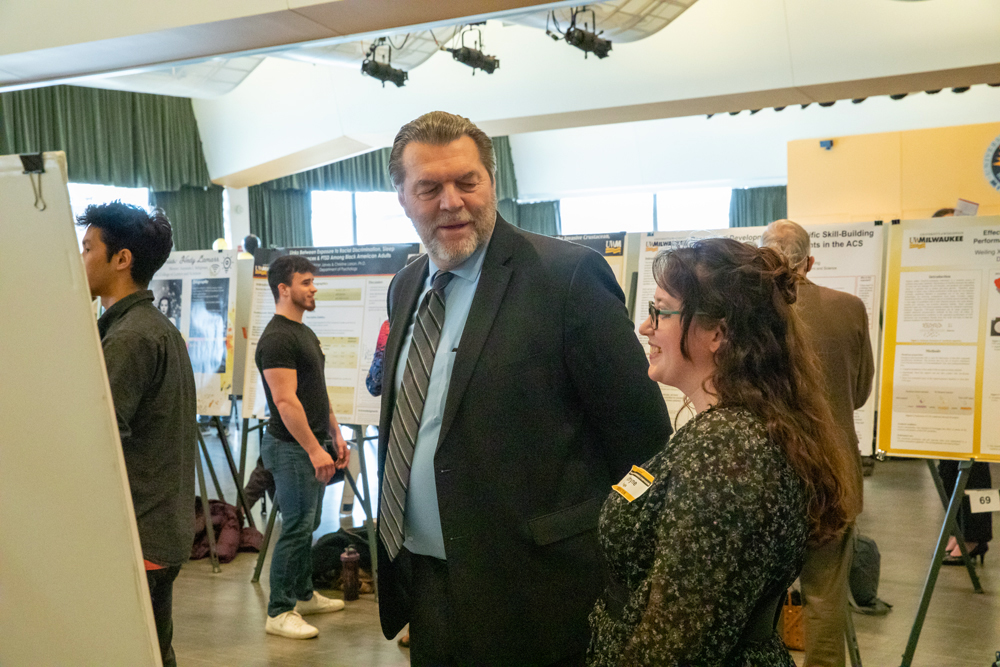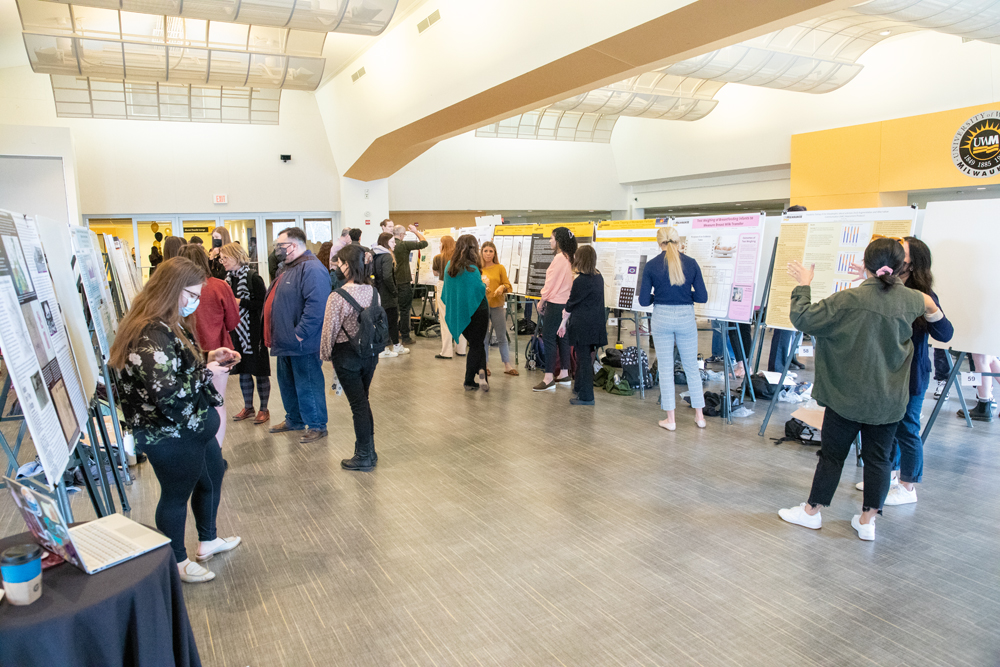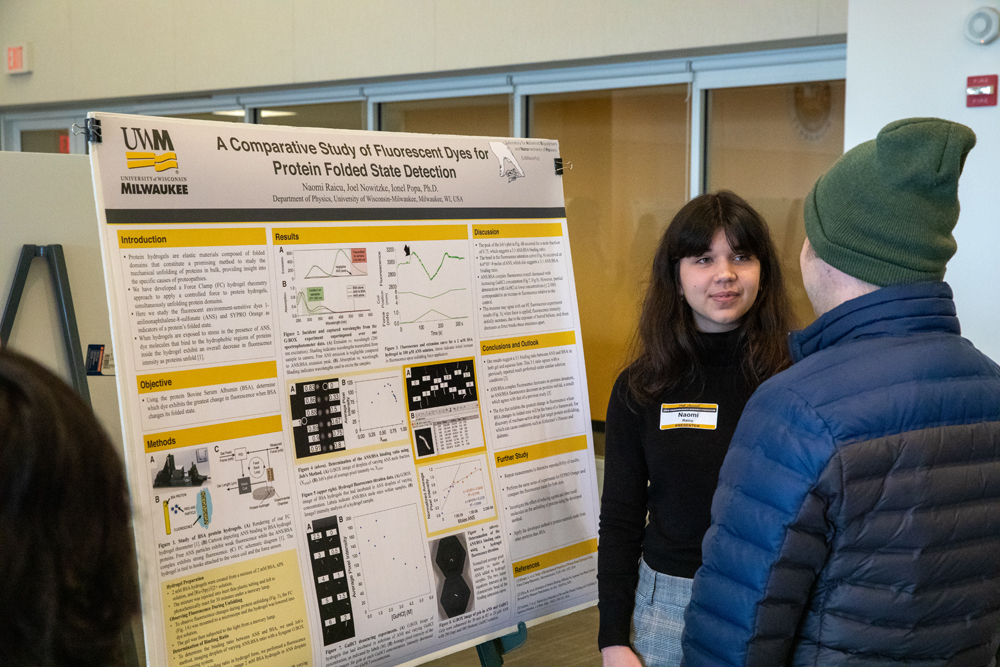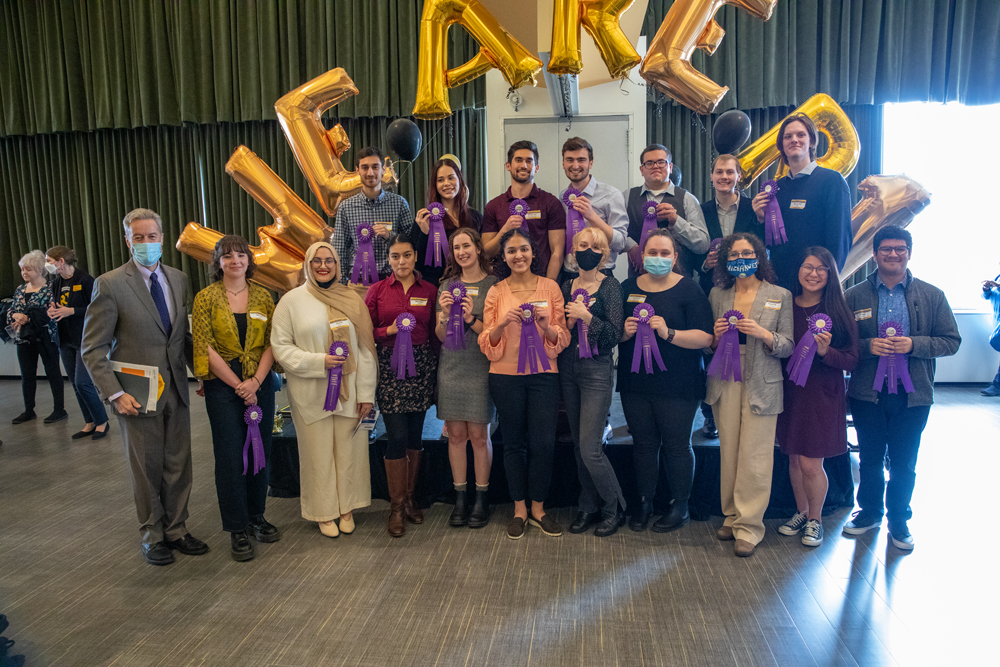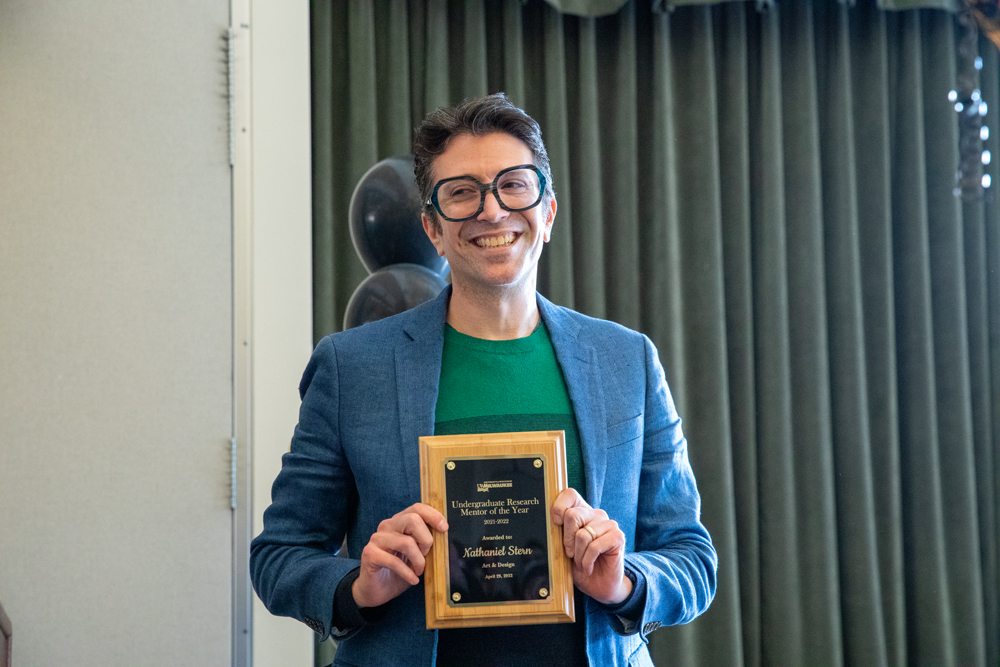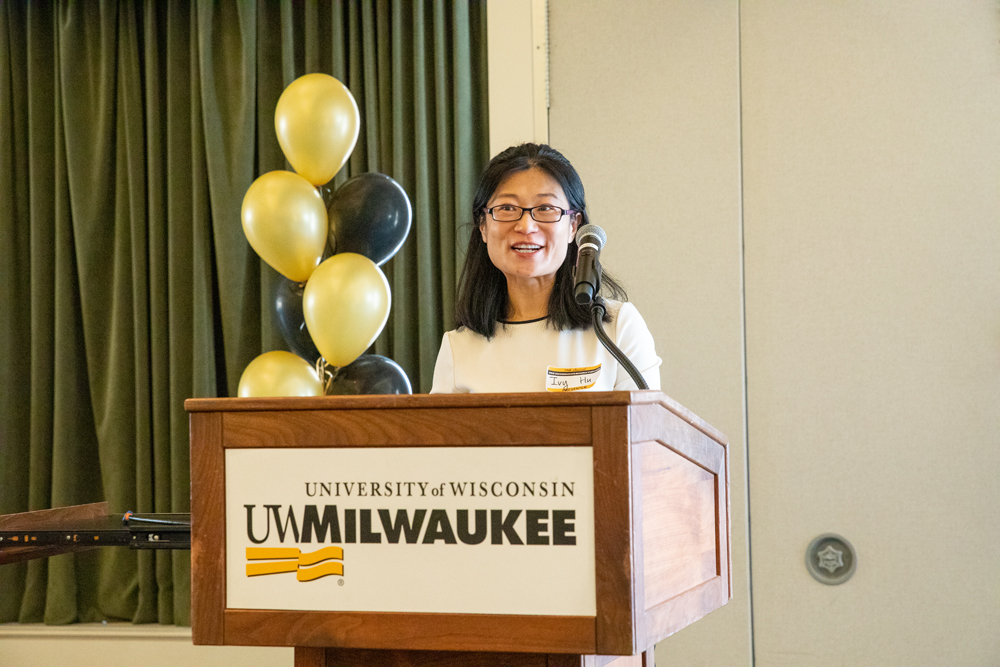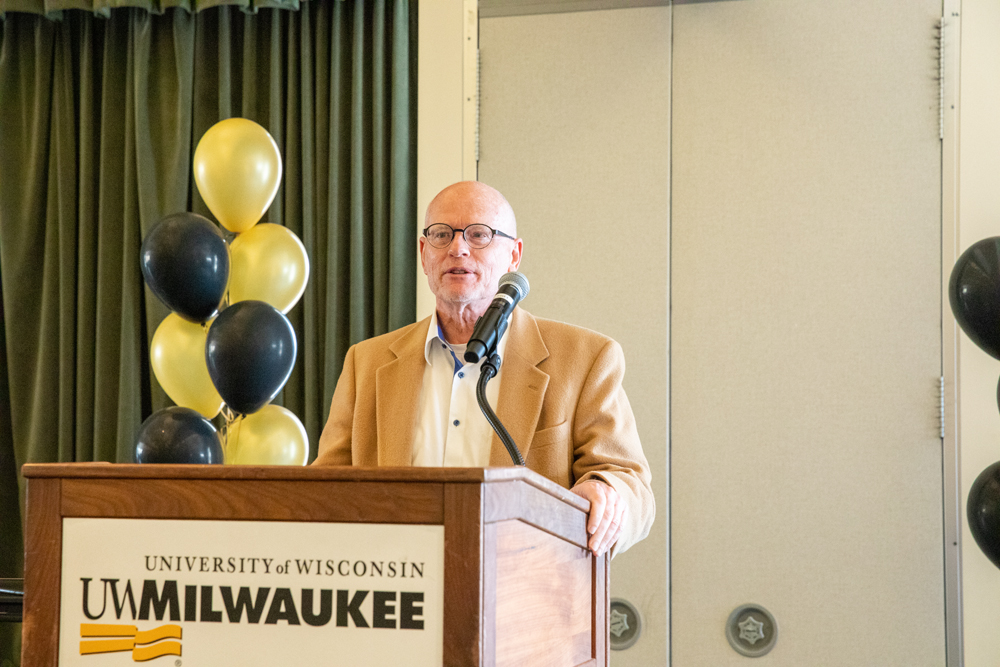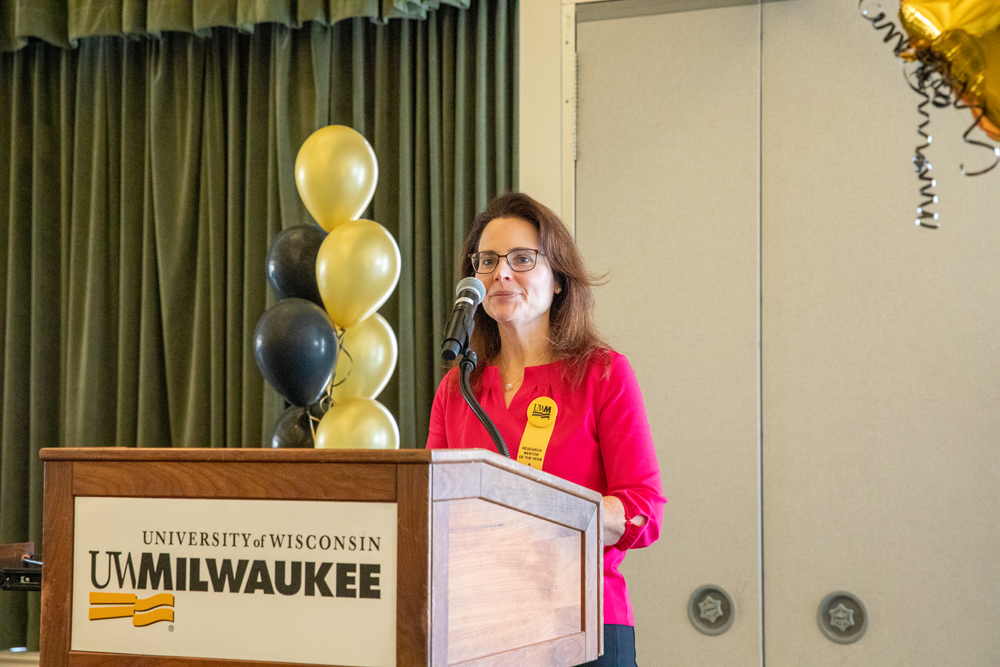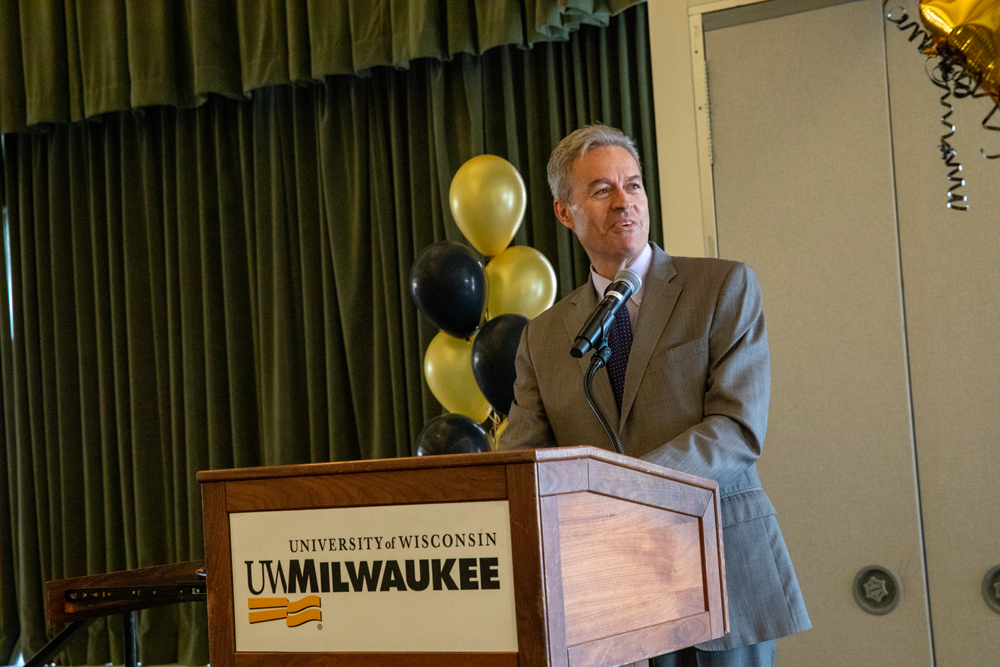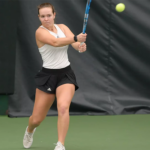Chancellor Mark Mone puts the credit for UWM’s recognition as a top research institution squarely on the shoulders of all campus researchers.
“You helped address societal issues and fed the bank of solutions and new products,” Mone told the crowd at a research celebration during the annual UWM Undergraduate Research Symposium at the Student Union.
The April 29 event celebrated the third consecutive time that UWM has earned the highest research rating from the Carnegie Classification of Institutions of Higher Education. This “R1” status places UWM among the world’s leading institutions of research – one of only 146 institutions, out of nearly 4,000 considered, that are placed in this category.
“Isn’t it great that we’ve gotten our undergraduate research celebration to piggyback on our R1 celebration?” he asked, donning a gold baseball cap with “R1” emblazoned in it. “How perfect is that?
“It’s important to realize how rare and how hard this achievement is. It doesn’t happen overnight,” Mone said. “And it’s because of your sustained efforts. You’ve made us a better university.”
Doctoral programs have grown
Mone thanked two UW regents in attendance – Kyle Weatherly and Rodney Pasch – and a half dozen state legislators.
In 1965, UWM offered only one Ph.D. program, he said. Today, there are 38 programs. And the university has conferred more than 4,000 doctoral degrees since it was first named as R1 in 2015.
“We’re probably one of the leanest universities named as R1,” Provost Johannes Britz said. “That’s why I’m so proud of this accomplishment. It means that if we had more resources, we have the potential to be a top urban institution, not just in Wisconsin, but in the nation.”
Two faculty researchers also addressed the crowd of about 300.
Research helps solve problems
Lingqian Ivy Hu, professor of urban planning, said research makes it possible to solve society’s long-standing problems.
Her current research is a case in point. Lower income and minority workers without cars live mainly in the city of Milwaukee. But the Milwaukee County’s transit system does not cross county boundaries, presenting a barrier between those who need access to good-paying jobs in the suburbs and suburban businesses that cannot find workers.
“We need to figure out an efficient and affordable way to connect them,” Hu said.
She and her research team recently were awarded a $1 million federal grant to test FlexRide Milwaukee, an on-demand, microtransit service.
The researchers will evaluate whether FlexRide Milwauke can improve employment of Milwaukee residents, help business to attract and retain workers, save travel time and reduce energy consumption.
“The project underscores the mission and the value of UWM,” Hu said. “Our research serves real people, real communities. And the R1 designation underscores the importance of research.”
Value of undergrad research
Distinguished Professor of Psychology Karyn Frick spoke about the value of UWM’s undergraduate research program.
Frick’s research lab consists of graduate students and postdoctoral scientists working to unravel the role of the hormone estrogen in memory decline in women. The work is driven by the fact that women face a much greater risk of developing Alzheimer’s disease than men.
Undergraduates, who work side-by-side with the other lab members daily, are “the unsung heroes” and the “lifeblood” of the research, Frick said.
“In my years of experience at some of the top research universities in the world, including Yale and Johns Hopkins, I have never seen a university provide such strong support for undergraduate researchers and their mentors,” Frick said.
At the symposium, 280 undergraduate students presented the research they’ve been working on with more than 200 faculty members and research staff.
